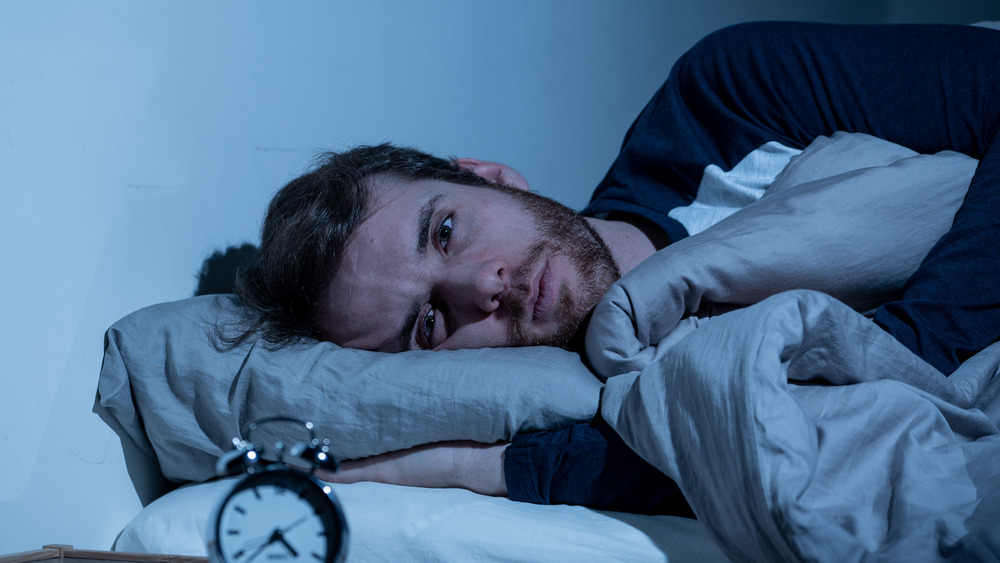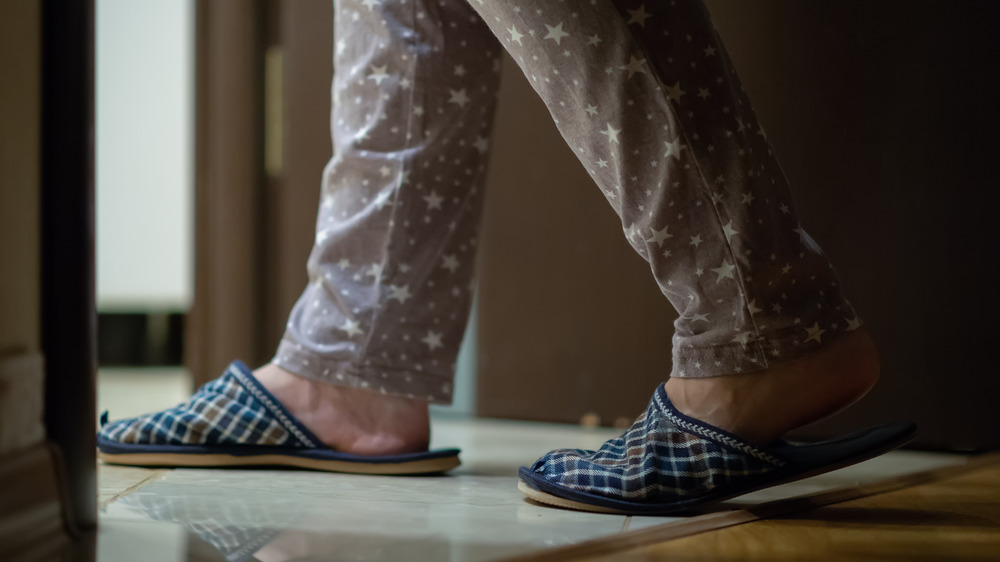What It Really Means When You Keep Waking Up To Use The Bathroom
The amount of urine the body produces typically decreases at night, allowing most people to sleep a solid six to eight hours without needing to get up to use the bathroom (via MedlinePlus). However, some people feel the urge to go frequently during the night, which can disrupt their sleep. This condition, known as nocturia, is more common as people get older but it can affect anyone at any age, according to the Cleveland Clinic.
Nocturia technically means a person is waking up to urinate one or more times a night (via the National Sleep Foundation). However, for most people, getting out of bed to use the bathroom once during the night is typically not too bothersome. It's when nocturia forces a person to make two or more bathroom trips during the night that it becomes a problem and disrupts sleep. According to the National Sleep Foundation, nocturia is very common, with about one-third of adults over the age of 30 waking up to urinate two or more times during the night. The condition becomes more common with age, especially in men, with estimates of nearly 50 percent of males in their 70s having to get out of bed at least twice per night to use the bathroom.
Causes of nocturia and how to treat it
A number of different factors can cause nocturia. Drinking too much fluids, particularly caffeine or alcohol, before bed can lead to the need to urinate more frequently during the night. Other common causes include urinary tract or bladder infections, an enlarged prostate gland, and certain medications like diuretics, or water pills. Pregnant women are commonly affected by nocturia, but it typically goes away about three months after delivery. Certain medical conditions can also bring on nocturia, including diabetes, peripheral edema (swelling or fluid accumulation in the legs), chronic kidney failure, and heart failure.
Treatment for nocturia depends on the cause. Reducing the amount of liquids you drink at night, as well as decreasing alcohol and caffeine consumption in the afternoon and evening, usually helps. Treating underlying conditions like bladder or urinary tract infections should also take care of nocturia. If diuretics are the culprit, make sure you time your doses about six hours before bedtime to prevent the need to urinate during the night. Elevating legs and wearing compression socks can help prevent fluid accumulation in the legs and ease nocturia, too. In some cases, medications to treat an overactive bladder may be prescribed.
Talk to your doctor if waking up to urinate during the night is disrupting your sleep so you can discuss the best treatment plan for you.


